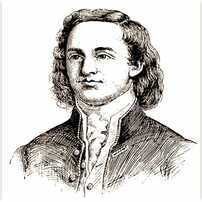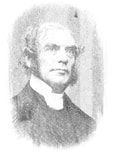W - Past-Witnesses-Files
- C Peter Wagner - John Weatherford - Simone Weil - Thelma L. Wells - Smith Wigglesworth - David Wilkerson - William Williams - Jarrid Wilson - John Leighton Wilson - John Wimber - Octavius Winslow - John Winthrop - KS Wuest -
c. peter wagner
Charles Peter Wagner (August 15, 1930 – October 21, 2016) was an American missionary, writer, teacher and founder of several Christian organizations. In his earlier years, Wagner was known as a key leader of the Church Growth Movement and later for his writings on spiritual warfare. Wagner served as a missionary in Bolivia under the South American Mission and Andes Evangelical Mission (now SIM International) from 1956 to 1971. He then served for 30 years (1971 to 2001) as Professor of Church Growth at the Fuller Theological Seminary's School of World Missions until his retirement in 2001. During his time at Fuller, Peter was largely recognized as the leading authority on the Church Growth Movement after his mentor and the founder of the movement, Donald McGavran passed the succession to him. The acceptance of Peter’s teachings on church growth by churches across the world was due in part to the use of Fuller Theological Seminary as a platform to spreading the message. Together, both McGavran and Wagner led the Fuller Evangelistic Association to continue to spread the message of church growth.
The Key to Mike Johnson’s Christian Extremism Hangs Outside His Office
The New Apostolic Reformation is a set of networks of Christian leaders that formed in the 1990s around a renegade evangelical seminary professor named C. Peter Wagner. These networks are part of the nondenominational charismatic segment of Christianity (“charismatic” here is a technical term of Christian theology and practice describing a spirituality built around miraculous manifestations and aiming to re-create the supernaturally imbued environment of the early Christian church). Wagner and his cohort believed that they were at the vanguard of a revolution in church leadership that Wagner often described as “the most radical change to the way of doing church since, at least, the Protestant Reformation.” The hundreds of leaders who joined Wagner’s movement and leadership-networking circles almost all identify as apostles (enterprising church builders) or prophets (who hear directly from God), though some identify as both. In the mid-2000s, these NAR networks collectively embraced a theological paradigm called the “Seven Mountain Mandate,” a prophecy that divides society into seven arenas — religion, family, government, education, arts and entertainment, media, and business. The “Mandate,” as they understand it, is given by God for Christians to “take dominion” and “conquer” the tops of all seven of these sectors and have Christian influence flow down into the rest of society. Drawn into American politics by this aggressive theological vision, many New Apostolic Reformation leaders became very active in right-wing political circles, including one of Wagner’s key disciples, an apostle-prophet named Dutch Sheets. Sheets is not a household name in Christian politics like Jerry Falwell or Ralph Reed or James Dobson, but he has real influence. Sheets has written more than 18 popular evangelical books, and his Intercessory Prayer has sold more than a million copies. He was an endorser and faith adviser to Newt Gingrinch’s short-lived candidacy for president in 2012, and he openly espoused the lie that Barack Obama was secretly a Muslim. (Bradley Onishi and Matthew D. Taylor/Yahoo News 11/10/23)
READ MORE>>>>>
The New Apostolic Reformation is a set of networks of Christian leaders that formed in the 1990s around a renegade evangelical seminary professor named C. Peter Wagner. These networks are part of the nondenominational charismatic segment of Christianity (“charismatic” here is a technical term of Christian theology and practice describing a spirituality built around miraculous manifestations and aiming to re-create the supernaturally imbued environment of the early Christian church). Wagner and his cohort believed that they were at the vanguard of a revolution in church leadership that Wagner often described as “the most radical change to the way of doing church since, at least, the Protestant Reformation.” The hundreds of leaders who joined Wagner’s movement and leadership-networking circles almost all identify as apostles (enterprising church builders) or prophets (who hear directly from God), though some identify as both. In the mid-2000s, these NAR networks collectively embraced a theological paradigm called the “Seven Mountain Mandate,” a prophecy that divides society into seven arenas — religion, family, government, education, arts and entertainment, media, and business. The “Mandate,” as they understand it, is given by God for Christians to “take dominion” and “conquer” the tops of all seven of these sectors and have Christian influence flow down into the rest of society. Drawn into American politics by this aggressive theological vision, many New Apostolic Reformation leaders became very active in right-wing political circles, including one of Wagner’s key disciples, an apostle-prophet named Dutch Sheets. Sheets is not a household name in Christian politics like Jerry Falwell or Ralph Reed or James Dobson, but he has real influence. Sheets has written more than 18 popular evangelical books, and his Intercessory Prayer has sold more than a million copies. He was an endorser and faith adviser to Newt Gingrinch’s short-lived candidacy for president in 2012, and he openly espoused the lie that Barack Obama was secretly a Muslim. (Bradley Onishi and Matthew D. Taylor/Yahoo News 11/10/23)
READ MORE>>>>>
July 11, 2023: Bucks County Beacon: Pennsylvania’s Prayer Warrior: Abby Abildness And Her Dominionist Crusade In The Commonwealth
Global Apostolic Prayer Network (GAPN) is in 115 nations.
GAPN is part of Heartland Apostolic Prayer Network, which promotes the Seven Mountains and was endorsed in 2010 by the late C. Peter Wagner. It was Wagner who named the NAR and helped organize the movement.
Global Apostolic Prayer Network (GAPN) is in 115 nations.
GAPN is part of Heartland Apostolic Prayer Network, which promotes the Seven Mountains and was endorsed in 2010 by the late C. Peter Wagner. It was Wagner who named the NAR and helped organize the movement.
Jan 23, 2023: New Republic: The Rise of Spirit Warriors on the Christian Right
This idea that the American political realm is a place of “spiritual warfare”—in a literal, not metaphorical, sense—is one of the defining elements of the new forms of highly politicized religion that are surging across the country. Some—but by no means all—of the figures claiming special vision into the demonic struggles of our times are associated with neo-charismatic movements such as the New Apostolic Reformation, or NAR, which grew up around the late C. Peter Wagner, an author and missionary who spent a decade and a half in Bolivia before becoming a professor of church growth at Fuller Theological Seminary’s School of World Mission in Pasadena, California. Wagner is frequently characterized as the NAR’s “intellectual godfather” and played a pivotal role in popularizing its vision of modern-day apostles and prophets, “spiritual warfare” with demons and “territorial spirits,” and the ideology of Seven Mountains Dominionism, which says conservative Christians are to take control of the seven key features, often referred to as “mountains” or “molders,” of culture, including government, business, media, education, entertainment, family, and religion. The NAR is perhaps the most extreme representative of the Pentecostal movement’s offshoots. But some of the same patterns of thought and expression popular among Christian apostolic and prophetic movements are gaining traction among those who identify with other religious movements and denominations.
This idea that the American political realm is a place of “spiritual warfare”—in a literal, not metaphorical, sense—is one of the defining elements of the new forms of highly politicized religion that are surging across the country. Some—but by no means all—of the figures claiming special vision into the demonic struggles of our times are associated with neo-charismatic movements such as the New Apostolic Reformation, or NAR, which grew up around the late C. Peter Wagner, an author and missionary who spent a decade and a half in Bolivia before becoming a professor of church growth at Fuller Theological Seminary’s School of World Mission in Pasadena, California. Wagner is frequently characterized as the NAR’s “intellectual godfather” and played a pivotal role in popularizing its vision of modern-day apostles and prophets, “spiritual warfare” with demons and “territorial spirits,” and the ideology of Seven Mountains Dominionism, which says conservative Christians are to take control of the seven key features, often referred to as “mountains” or “molders,” of culture, including government, business, media, education, entertainment, family, and religion. The NAR is perhaps the most extreme representative of the Pentecostal movement’s offshoots. But some of the same patterns of thought and expression popular among Christian apostolic and prophetic movements are gaining traction among those who identify with other religious movements and denominations.
Jan 10, 2023: Baptist News Global: The New Apostolic Reformation drove the January 6 riots, so why was it overlooked by the House Select Committee?
Taylor focuses his attention throughout the podcast on a group of apostles, prophets and worship leaders connected to the New Apostolic Reformation, which is a loosely affiliated yet highly networked circle of independent charismatics who have been influenced by C. Peter Wagner.
Taylor focuses his attention throughout the podcast on a group of apostles, prophets and worship leaders connected to the New Apostolic Reformation, which is a loosely affiliated yet highly networked circle of independent charismatics who have been influenced by C. Peter Wagner.
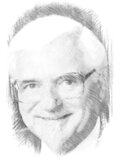 C Peter Wagner
C Peter Wagner
“God’s purpose may be thwarted or it may be accomplished depending, to one degree or another, on the obedience of His people and their willingness to use the weapons of spiritual warfare that He has provided. God is powerful enough to win any battle, but He has designed things so that the release of His power at a given moment of time often is contingent upon the decisions and the actions of His people. A principle weapon of spiritual warfare is prayer. Not just routine or mediocre prayer, but prayer powerful enough to move God’s hand in order to determine the destiny of a whole nation.” ---C. Peter Wagner
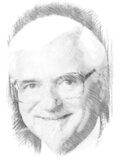 C Peter Wagner
C Peter Wagner
Dominion has to do with control. Dominion has to do with rulership. Dominion has to do with authority and subduing. And it relates to society — in other words what is talked about, what the values are in heaven [that] need to be made manifest here on earth. Dominion means being the head and not the tail. Dominion means ruling as kings. It says in Revelation chapter 1:6 that "he has made us kings and priests," and check the rest of that verse, it says "for dominion." So we are kings for dominion. -C. Peter Wagner
John Weatherford
Nov 29, 1999: Baptist News Global: The mystery of the call
When John Weatherford was converted, he considered which of the various Christian groups to join. He narrowed his considerations between Baptists and Presbyterians. He talked with ministers of both persuasions. Finally, one of the Presbyterians observed, “I perceive you will be a Baptist; go, and the Lord be with you.”
When John Weatherford was converted, he considered which of the various Christian groups to join. He narrowed his considerations between Baptists and Presbyterians. He talked with ministers of both persuasions. Finally, one of the Presbyterians observed, “I perceive you will be a Baptist; go, and the Lord be with you.”
Because of the depth of Baptist sentiment in Pittsylvania, it is understandable that this county became home to the beloved Baptist preacher John Weatherford during his last 10 years. Weatherford had suffered more persecution than most for his preaching, carrying scars to the grave. While imprisoned for preaching in 1773 in Chesterfield County, he had continued to preach to large crowds through the jail window, his hands extended through the bars. His extended hands proved a tempting target for knife-wielding ruffians who slashed his hands.
Eventually Patrick Henry secured Weatherford's release from jail, and paid his fines, acts for which Weatherford was ever after deeply grateful. (When Weatherford sent 5 pounds currency to Henry in payment for his services, it was returned.) Henry's admiration for the Baptists greatly affected his own personal philosophy and devotion and also his public life. (Later, in 1787-88, Henry apparently experienced a deep Christian conversion experience during a revival which spread from Hampden-Sydney College, and became an active personal evangelist during his later years.) It is through the influence of first Patrick Henry and later Thomas Jefferson that the principles of religious freedom became foundational to the U.S. Constitution.
--Henry H Mitchell; John Weatherford Remembered as Unstoppable Dissenting Preacher
Eventually Patrick Henry secured Weatherford's release from jail, and paid his fines, acts for which Weatherford was ever after deeply grateful. (When Weatherford sent 5 pounds currency to Henry in payment for his services, it was returned.) Henry's admiration for the Baptists greatly affected his own personal philosophy and devotion and also his public life. (Later, in 1787-88, Henry apparently experienced a deep Christian conversion experience during a revival which spread from Hampden-Sydney College, and became an active personal evangelist during his later years.) It is through the influence of first Patrick Henry and later Thomas Jefferson that the principles of religious freedom became foundational to the U.S. Constitution.
--Henry H Mitchell; John Weatherford Remembered as Unstoppable Dissenting Preacher
Simone Weil
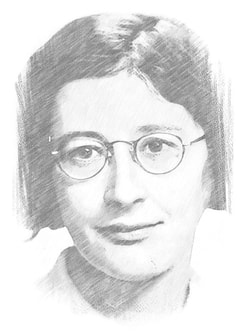 Simone Weil
Simone Weil
“Evil when we are in its power is not felt as evil but as a necessity, or even a duty. ”
― Simone Weil
“It seemed to me certain, and I still think so today, that one can never wrestle enough with God if one does so out of pure regard for the truth. Christ likes us to prefer truth to him because, before being Christ, he is truth. If one turns aside from him to go toward the truth, one will not go far before falling into his arms. ”
― Simone Weil
“Imagination and fiction make up more than three quarters of our real life.”
― Simone Weil
“A science which does not bring us nearer to God is worthless. ”
― Simone Weil
“All sins are attempts to fill voids.”
― Simone Weil
“Imaginary evil is romantic and varied; real evil is gloomy, monotonous, barren, boring. Imaginary good is boring; real good is always new, marvelous, intoxicating.”
― Simone Weil
― Simone Weil
“It seemed to me certain, and I still think so today, that one can never wrestle enough with God if one does so out of pure regard for the truth. Christ likes us to prefer truth to him because, before being Christ, he is truth. If one turns aside from him to go toward the truth, one will not go far before falling into his arms. ”
― Simone Weil
“Imagination and fiction make up more than three quarters of our real life.”
― Simone Weil
“A science which does not bring us nearer to God is worthless. ”
― Simone Weil
“All sins are attempts to fill voids.”
― Simone Weil
“Imaginary evil is romantic and varied; real evil is gloomy, monotonous, barren, boring. Imaginary good is boring; real good is always new, marvelous, intoxicating.”
― Simone Weil
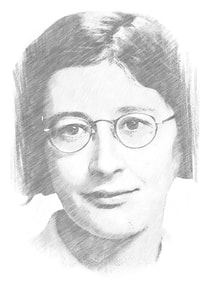 Simone Weil
Simone Weil
“The capacity to pay attention to an afflicted person is something very rare, very difficult; it is nearly a miracle. It is a miracle. Nearly all those who believe they have this capacity do not. Warmth, movements of the heart, and pity are not sufficient.”
― Simone Weil, Waiting for God
“The sea is not less beautiful in our eyes because we know that sometimes ships are wrecked by it.”
― Simone Weil, Waiting for God
“A beautiful woman looking at her image in the mirror may very well believe the image is herself. An ugly woman knows it is not.”
― Simone Weil, Waiting for God
― Simone Weil, Waiting for God
“The sea is not less beautiful in our eyes because we know that sometimes ships are wrecked by it.”
― Simone Weil, Waiting for God
“A beautiful woman looking at her image in the mirror may very well believe the image is herself. An ugly woman knows it is not.”
― Simone Weil, Waiting for God
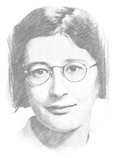 Simone Weil
Simone Weil
“The world is the closed door. It is a barrier. And at the same time it is the way through. Two prisoners whose cells adjoin communicate with each other by knocking on the wall. The wall is the thing which separates them but it is also their means of communication. … Every separation is a link.” ― Simone Weil, Gravity and Grace
thelma L. Wells
Nov 2, 2022: Focus Daily: Cedar Hill’s Thelma L. Wells, Beloved Speaker, Teacher and Author Has Passed
Thelma L. Wells, known as “Mama T.” has passed. Mama T. was known worldwide for her warmth and candor as a business woman, speaker, teacher and author. She has been featured in numerous local and national publications and appeared on TV shows including The Dr. Phil Show, The Joanie Show, Life Today and the 700 Club. She was a sought after speaker by corporations, women’s groups and government entities. As a speaker, she spoke to over a million people and shared the stage with speakers such as Zig Ziglar, Max Lucado, Kay Arthur, June Hunt and of course her Women of Faith porch pals: Luci Swindoll, Sheila Walsh, Patsy Clairmont, Marilyn Meberg, Nicole Johnson and Sandy Patti.
Thelma L. Wells, known as “Mama T.” has passed. Mama T. was known worldwide for her warmth and candor as a business woman, speaker, teacher and author. She has been featured in numerous local and national publications and appeared on TV shows including The Dr. Phil Show, The Joanie Show, Life Today and the 700 Club. She was a sought after speaker by corporations, women’s groups and government entities. As a speaker, she spoke to over a million people and shared the stage with speakers such as Zig Ziglar, Max Lucado, Kay Arthur, June Hunt and of course her Women of Faith porch pals: Luci Swindoll, Sheila Walsh, Patsy Clairmont, Marilyn Meberg, Nicole Johnson and Sandy Patti.
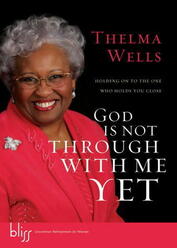 God Is Not Through with Me Yet
God Is Not Through with Me Yet
God Is Not Through with Me Yet: Holding On to the One Who Holds You Close by Thelma Wells
Thelma Wells has known a lifetime of achievements and victories over obstacles, as well as a wealth of meaningful relationships and abundant ministry to countless others. But recently, God led her into dark valleys–including an almost fatal illness–as part of His plan to deepen her firsthand knowledge of Himself as the Great I AM. This rich experience is what she shares with you, along with plenty of smiles and laughter, in God Is Not Through with Me Yet . She’s the first to say, “Thelma doesn’t have it all together. No one has it all together.” But the Lord has filled her heart to overflowing with new appreciation for His loving wisdom and His healing truth. It’s an overflow that spills out, with clarity, and humor, on every page of this book.
With personal stories and solid biblical teaching that open your heart to God’s truth, Thelma guides you to a deeper faith and an exuberant desire to follow your Lord…even through your life’s most turbulent storms. With the warmth of a grandmother, the wit of a jokester, and the wisdom of a woman in the Word, Thelma opens your eyes to the full wholeness God has for you.
224 pages, Hardcover. First published March 24, 2005
Thelma Wells has known a lifetime of achievements and victories over obstacles, as well as a wealth of meaningful relationships and abundant ministry to countless others. But recently, God led her into dark valleys–including an almost fatal illness–as part of His plan to deepen her firsthand knowledge of Himself as the Great I AM. This rich experience is what she shares with you, along with plenty of smiles and laughter, in God Is Not Through with Me Yet . She’s the first to say, “Thelma doesn’t have it all together. No one has it all together.” But the Lord has filled her heart to overflowing with new appreciation for His loving wisdom and His healing truth. It’s an overflow that spills out, with clarity, and humor, on every page of this book.
With personal stories and solid biblical teaching that open your heart to God’s truth, Thelma guides you to a deeper faith and an exuberant desire to follow your Lord…even through your life’s most turbulent storms. With the warmth of a grandmother, the wit of a jokester, and the wisdom of a woman in the Word, Thelma opens your eyes to the full wholeness God has for you.
224 pages, Hardcover. First published March 24, 2005
smith wigglesworth |
- Wikipedia -
|
Smith Wigglesworth (10 June 1859 – 12 March 1947) was a British evangelist who was influential in the early history of Pentecostalism. He was confirmed by a Bishop in the Church of England, baptized by immersion in a Baptist church and had grounding in Bible teaching in the Plymouth Brethren while learning the plumbing trade as an apprentice from a man in the Brethren movement.
May 26, 2023: GB Spirit Times: Who was Smith Wigglesworth?
Smith Wigglesworth was a renowned preacher and evangelist who lived between the years 1859-1947. Born in Menston, Yorkshire, England, Wigglesworth started out as a plumber before he became a full-time preacher. He is widely regarded as a pioneer of the Pentecostal movement, and his teachings have had an enormous impact on Christianity as a whole. In this article, we will look at who Smith Wigglesworth was and his impact on the Pentecostal movement.
Smith Wigglesworth was a renowned preacher and evangelist who lived between the years 1859-1947. Born in Menston, Yorkshire, England, Wigglesworth started out as a plumber before he became a full-time preacher. He is widely regarded as a pioneer of the Pentecostal movement, and his teachings have had an enormous impact on Christianity as a whole. In this article, we will look at who Smith Wigglesworth was and his impact on the Pentecostal movement.
March 13, 2023: Charisma: Fruition of David Wilkerson Prophecy Is Shaking the Church
Wilkerson saw it, but so did Smith Wigglesworth back in 1927. Wigglesworth prophesied then, “All the people which are pressing into and getting ready for this glorious attained place where they shall not be found naked, where they shall be blameless, where they shall be immovable, where they shall be purified by the power of the Word of God, have within them a consciousness of the very presence of God within, changing their very nature and preparing them for a greater thing, and causing them to be ready for translation.”
Wilkerson saw it, but so did Smith Wigglesworth back in 1927. Wigglesworth prophesied then, “All the people which are pressing into and getting ready for this glorious attained place where they shall not be found naked, where they shall be blameless, where they shall be immovable, where they shall be purified by the power of the Word of God, have within them a consciousness of the very presence of God within, changing their very nature and preparing them for a greater thing, and causing them to be ready for translation.”

Just days before Smith Wigglesworth suddenly passed away, he sit with a young man of whom he was mentoring. Mr. Wigglesworth wept as he looked at all the invitations of those who wanted him to come speak at their churches and or ministries.
He said to his young friend, “people have their eyes on me, God will take me out of the way.”
A week or so later, he was dead.
Today, people continue to put their eyes on men they esteemed as “great” and they even do so with Smith Wigglesworth. Yet Wigglesworth was broken that people had their eyes on him in such a manner, rather than having their eyes on God -Rooted & Grounded in Christ
He said to his young friend, “people have their eyes on me, God will take me out of the way.”
A week or so later, he was dead.
Today, people continue to put their eyes on men they esteemed as “great” and they even do so with Smith Wigglesworth. Yet Wigglesworth was broken that people had their eyes on him in such a manner, rather than having their eyes on God -Rooted & Grounded in Christ
david wilkerson
David Wilkerson was called to New York City in 1958 to minister to gang members and drug addicts, as told in the best-selling book The Cross and the Switchblade. He went on to create Teen Challenge and World Challenge, Inc. to minister to people’s spiritual and physical needs.
In 1987, he established Times Square Church. As its founding pastor, he faithfully led this congregation, delivering powerful biblical messages that encourage righteous living and complete reliance on God.
David Wilkerson also had a strong burden to encourage his fellow pastors. He founded the Summit International School of Ministry; and from 1999 to 2008, he held international conferences to strengthen church leaders.
In 1987, he established Times Square Church. As its founding pastor, he faithfully led this congregation, delivering powerful biblical messages that encourage righteous living and complete reliance on God.
David Wilkerson also had a strong burden to encourage his fellow pastors. He founded the Summit International School of Ministry; and from 1999 to 2008, he held international conferences to strengthen church leaders.
March 13, 2023: Charisma: Fruition of David Wilkerson Prophecy Is Shaking the Church
Mario Murillo says David Wilkerson saw it coming. The scope and sensationalism that has engulfed our churches for years—something that has left the church empty and dry—will no longer be tolerated by God. True children of God want more, and a separation, Murillo says, is coming our way very soon for a “massive number of Christians” who will experience this strange miracle.
Mario Murillo says David Wilkerson saw it coming. The scope and sensationalism that has engulfed our churches for years—something that has left the church empty and dry—will no longer be tolerated by God. True children of God want more, and a separation, Murillo says, is coming our way very soon for a “massive number of Christians” who will experience this strange miracle.
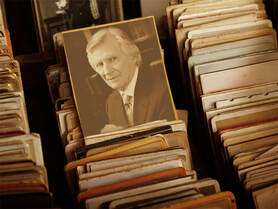 David Wilerson
David Wilerson
Satan is succeeding through television in a way not possible by any other kind of demonic invasion. Through that speaking idol, he can accomplish in this generation what he accomplished in Eden...But the sodomites are in now --in our homes. And we are now blinded ones. Homosexual writers, actors, and producers flaunt their evil right before our eyes; and admit it or not, you and all your home are under the demonic sodomite attack."
--David Wilkerson; Set Thy Trumpet to Thy Mouth; 1985
--David Wilkerson; Set Thy Trumpet to Thy Mouth; 1985
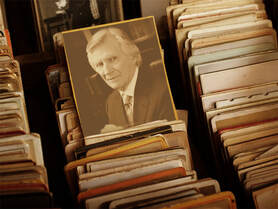 David Wilerson
David Wilerson
God wants us to have a revelation of him as a father — a heavenly Father! Jesus prayed, “That they all may be one, as You, Father, are in Me, and I in You; that they also may be one in Us, that the world may believe that You sent Me. And the glory which You gave Me I have given them, that they may be one just as We are one” (John 17:21-22). Jesus was saying here, “You say you want to know me, and that is good, but now I want you to know my Father as I know and enjoy him.”
God not only chose you, but he adopted you as his child. And his Spirit tells you to cry, “Abba” to him, saying, “You have made me a joint-heir, a brother, to Jesus. You are truly mine!” How wonderful to know that he chose each of us to be his child solely on the basis of love and mercy. In his mercy he says to you, “I want you — I choose you — because I want to be a father to you.” --David Wilkerson
God not only chose you, but he adopted you as his child. And his Spirit tells you to cry, “Abba” to him, saying, “You have made me a joint-heir, a brother, to Jesus. You are truly mine!” How wonderful to know that he chose each of us to be his child solely on the basis of love and mercy. In his mercy he says to you, “I want you — I choose you — because I want to be a father to you.” --David Wilkerson
william williams
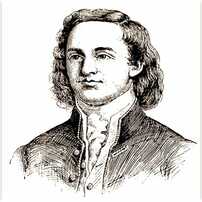
William Williams, professor of ecclesiastical history 1859-1877, was born at Eatonton, Georgia, on March 15, 1821. He was converted and united with a Baptist church in 1837, and graduated from the University of Georgia in 1840. Several times a vice-president of the SBC, Williams preached the convention’s twenty-fifth annual sermon at St. Louis in May 1871. He published one book, Apostolic Church Polity, published in 1874. Williams died at Aiken, South Carolina, Feb 20, 1877, and was buried at Greenville, South Carolina, where his former students erected a monument to his memory.
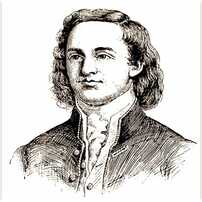 William Williams Files
William Williams Files
“Christ came not to make the law void but rather to explain and enforce it, that he might render holiness more evident and raise his people to greater exercise in it than ever before. And it should be the aim and design of all Christians, for Christ’s sake as well as their own and others, that their graces may be resplendent in the holiness and universal righteousness that as the apostle directs, “they may adorn the gospel,” (Titus 2:10), and walk worthy of their relationship to God (Col. 1:10).”
---William Williams, The Danger of Not Reforming Known Evils, and Other Works, (Crossville, TN: Puritan Publications, 2022)
---William Williams, The Danger of Not Reforming Known Evils, and Other Works, (Crossville, TN: Puritan Publications, 2022)
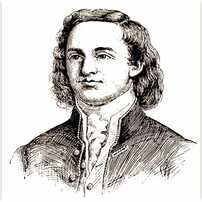 William Williams Files
William Williams Files
“Whatever pretenses men make of being thankful for the word of God, when they speak of having light and grace as a privilege while not yielding themselves to the obedience to the light nor conforming themselves to the commands of it, they are not truly thankful at all (Neh. 9:26).”
---William Williams, The Danger of Not Reforming Known Evils, and Other Works, (Crossville, TN: Puritan Publications, 2022)
“Whatever pretenses men make of being thankful for the word of God, when they speak of having light and grace as a privilege while not yielding themselves to the obedience to the light nor conforming themselves to the commands of it, they are not truly thankful at all (Neh. 9:26).”
---William Williams, The Danger of Not Reforming Known Evils, and Other Works, (Crossville, TN: Puritan Publications, 2022)
jarrid wilson

Thomas Jarrid Wilson (September 18, 1988 – September 9, 2019) was an American pastor and author.
He worked for 18 months at Harvest Christian Fellowship in Riverside, California, and he had previously pastored at Highpoint Church in Memphis, Tennessee, Home Church Nashville in Nashville, Tennessee, and at LifePoint Church in Smyrna, Tennessee. He and his wife, Juli, founded Anthem of Hope, a program for people with depression.
He worked for 18 months at Harvest Christian Fellowship in Riverside, California, and he had previously pastored at Highpoint Church in Memphis, Tennessee, Home Church Nashville in Nashville, Tennessee, and at LifePoint Church in Smyrna, Tennessee. He and his wife, Juli, founded Anthem of Hope, a program for people with depression.
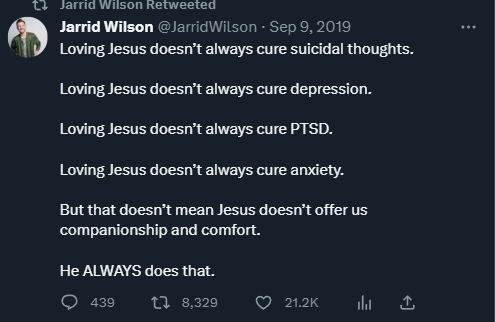
Pastor Jarrid Wilson, a California church leader, author and mental health advocate, died by apparent suicide Monday night, his wife said.
He was 30.
"My loving, giving, kind-hearted, encouraging, handsome, hilarious, give the shirt of his back husband went to be with Jesus late last night," Juli Wilson posted on Instagram Tuesday. "Suicide doesn’t get the last word. I won’t let it. You always said, “Hope Gets the last word. Jesus gets the last word.”
Before his death, he tweeted, “Loving Jesus doesn’t always cure suicidal thoughts.”
He was 30.
"My loving, giving, kind-hearted, encouraging, handsome, hilarious, give the shirt of his back husband went to be with Jesus late last night," Juli Wilson posted on Instagram Tuesday. "Suicide doesn’t get the last word. I won’t let it. You always said, “Hope Gets the last word. Jesus gets the last word.”
Before his death, he tweeted, “Loving Jesus doesn’t always cure suicidal thoughts.”
 Jarrid Wilson Files
Jarrid Wilson Files
Because of this harsh reality, many of us have our foundations ripped out from underneath us when things get tough. We must nurture the gift that God has given us. We must constantly take care of our spiritual roots, providing nourishment and care. Without doing so, our relationship with God will eventually be destroyed. Take each day as an opportunity to nurture your spiritual roots, seek nourishment through the cross of Jesus, and protection through the power of the Holy Spirit.
-Jarrid Wilson
Because of this harsh reality, many of us have our foundations ripped out from underneath us when things get tough. We must nurture the gift that God has given us. We must constantly take care of our spiritual roots, providing nourishment and care. Without doing so, our relationship with God will eventually be destroyed. Take each day as an opportunity to nurture your spiritual roots, seek nourishment through the cross of Jesus, and protection through the power of the Holy Spirit.
-Jarrid Wilson
John Leighton Wilson
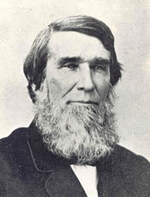
The work assigned the Church by her Divine Head is to make known the salvation of Jesus. The field he has given her to cultivate is the world. If this is not the special work of the Church, then the Scriptures may be searched in vain to find out what that work is.
--John Leighton Wilson; Thoughts on Foreign Missions
john wimber
Jan 10, 2023: Baptist News Global: The New Apostolic Reformation drove the January 6 riots, so why was it overlooked by the House Select Committee?
During the 1980s, he invited John Wimber, a founding leader in the charismatic Vineyard Movement, to help teach his classes on healing and hearing the voice of God. But because Fuller began getting concerned for its reputation, the classes were shut down. Eventually, Wimber became concerned about how extreme Wagner was becoming after the Toronto Blessing and stopped teaching with him.
During the 1980s, he invited John Wimber, a founding leader in the charismatic Vineyard Movement, to help teach his classes on healing and hearing the voice of God. But because Fuller began getting concerned for its reputation, the classes were shut down. Eventually, Wimber became concerned about how extreme Wagner was becoming after the Toronto Blessing and stopped teaching with him.
octavius winslow
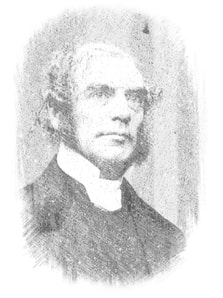 Octavius Winslow
Octavius Winslow
Affliction is to the believer what the wing is to the lark and what the eye is to the eagle, the means by which the soul mounts in praise heavenward, gazing closely and steadily upon the glorious Sun of righteousness. Chastening seals our sonship, sorrow disciplines the heart, affliction propels the soul onward. We should have a more vivid conception of the power of affliction as an ingredient of holiness if we kept more constantly in remembrance the fact that all the afflictive, trying dispensations of the believer are covenant dispensations, that they are not of the same character nor do they produce the same results as in the ungodly. They are among the 'sure mercies of David'. In the case of the unregenerate, all afflictions are a part and parcel of the curse and work naturally against their good; but in the case of the regenerate, they are, in virtue of the covenant of grace, transformed into blessings and work spiritually for their good. Just as the mountain stream coursing its way meets some sanative mineral by which it becomes endowed with a healing property, so afflictions, passing through the covenant, change their character, derive a sanctifying property, and thus become a healing medicine to the soul. -Octavius Winslow
john winthrop
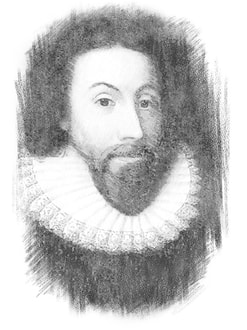 John Winthrop
John Winthrop
John Winthrop delivered the following sermon before he and his fellow settlers reached New England. The sermon is famous largely for its use of the phrase “a city on a hill,” used to describe the expectation that the Massachusetts Bay colony would shine like an example to the world. But Winthrop’s sermon also reveals how he expected Massachusetts to differ from the rest of the world.
A Modell Hereof
God Almighty in his most holy and wise providence hath so disposed of the condition of mankind, as in all times some must be rich some poor, some high and eminent in power and dignity; others mean and in subjection.
The Reason hereof:
1st Reason. First to hold conformity with the rest of His world, being delighted to show forth the glory of his wisdom in the variety and difference of the creatures, and the glory of His power in ordering all these differences for the preservation and good of the whole, and the glory of His greatness, that as it is the glory of princes to have many officers, so this great king will have many stewards, counting himself more honored in dispensing his gifts to man by man, than if he did it by his own immediate hands.
2nd Reason. Secondly, that He might have the more occasion to manifest the work of his Spirit: first upon the wicked in moderating and restraining them, so that the rich and mighty should not eat up the poor, nor the poor and despised rise up against and shake off their yoke. Secondly, in the regenerate, in exercising His graces in them, as in the great ones, their love, mercy, gentleness, temperance etc., and in the poor and inferior sort, their faith, patience, obedience etc.
3rd Reason. Thirdly, that every man might have need of others, and from hence they might be all knit more nearly together in the bonds of brotherly affection. From hence it appears plainly that no man is made more honorable than another or more wealthy etc., out of any particular and singular respect to himself, but for the glory of his Creator and the common good of the creature, Man. Therefore God still reserves the property of these gifts to Himself as Ezek. 16:17, He there calls wealth, His gold and His silver, and Prov. 3:9, He claims their service as His due, “Honor the Lord with thy riches,” etc. — All men being thus (by divine providence) ranked into two sorts, rich and poor; under the first are comprehended all such as are able to live comfortably by their own means duly improved; and all others are poor according to the former distribution….
Question: What rule must we observe and walk by in cause of community of peril?
Answer: The same as before, but with more enlargement towards others and less respect towards ourselves and our own right. Hence it was that in the primitive Church they sold all, had all things in common, neither did any man say that which he possessed was his own. Likewise in their return out of the captivity, because the work was great for the restoring of the church and the danger of enemies was common to all, Nehemiah directs the Jews to liberality and readiness in remitting their debts to their brethren, and disposing liberally to such as wanted, and stand not upon their own dues which they might have demanded of them. Thus did some of our forefathers in times of persecution in England, and so did many of the faithful of other churches, whereof we keep an honorable remembrance of them; and it is to be observed that both in Scriptures and latter stories of the churches that such as have been most bountiful to the poor saints, especially in those extraordinary times and occasions, God hath left them highly commended to posterity…
Thus stands the cause between God and us. We are entered into covenant with Him for this work. We have taken out a commission. The Lord hath given us leave to draw our own articles. We have professed to enterprise these and those accounts, upon these and those ends. We have hereupon besought Him of favor and blessing. Now if the Lord shall please to hear us, and bring us in peace to the place we desire, then hath He ratified this covenant and sealed our commission, and will expect a strict performance of the articles contained in it; but if we shall neglect the observation of these articles which are the ends we have propounded, and, dissembling with our God, shall fall to embrace this present world and prosecute our carnal intentions, seeking great things for ourselves and our posterity, the Lord will surely break out in wrath against us, and be revenged of such a people, and make us know the price of the breach of such a covenant.
Now the only way to avoid this shipwreck, and to provide for our posterity, is to follow the counsel of Micah, to do justly, to love mercy, to walk humbly with our God. For this end, we must be knit together, in this work, as one man. We must entertain each other in brotherly affection. We must be willing to abridge ourselves of our superfluities, for the supply of others’ necessities. We must uphold a familiar commerce together in all meekness, gentleness, patience and liberality. We must delight in each other; make others’ conditions our own; rejoice together, mourn together, labor and suffer together, always having before our eyes our commission and community in the work, as members of the same body. So shall we keep the unity of the spirit in the bond of peace. The Lord will be our God, and delight to dwell among us, as His own people, and will command a blessing upon us in all our ways, so that we shall see much more of His wisdom, power, goodness and truth, than formerly we have been acquainted with. We shall find that the God of Israel is among us, when ten of us shall be able to resist a thousand of our enemies; when He shall make us a praise and glory that men shall say of succeeding plantations, “may the Lord make it like that of New England.” For we must consider that we shall be as a city upon a hill. The eyes of all people are upon us. So that if we shall deal falsely with our God in this work we have undertaken, and so cause Him to withdraw His present help from us, we shall be made a story and a by-word through the world. We shall open the mouths of enemies to speak evil of the ways of God, and all professors for God’s sake. We shall shame the faces of many of God’s worthy servants, and cause their prayers to be turned into curses upon us till we be consumed out of the good land whither we are going.
And to shut this discourse with that exhortation of Moses, that faithful servant of the Lord, in his last farewell to Israel, Deut. 30. “Beloved, there is now set before us life and death, good and evil,” in that we are commanded this day to love the Lord our God, and to love one another, to walk in his ways and to keep his Commandments and his ordinance and his laws, and the articles of our Covenant with Him, that we may live and be multiplied, and that the Lord our God may bless us in the land whither we go to possess it. But if our hearts shall turn away, so that we will not obey, but shall be seduced, and worship other Gods, our pleasure and profits, and serve them; it is propounded unto us this day, we shall surely perish out of the good land whither we pass over this vast sea to possess it.
Therefore let us choose life, that we and our seed may live, by obeying His voice and cleaving to Him, for He is our life and our prosperity.
--John Winthrop, “A Model of Christian Charity,” in A Library of American Literature: Early Colonial Literature, 1607-1675, Edmund Clarence Stedman and Ellen Mackay Hutchinson, eds. (New York: 1892), 304-307.
A Modell Hereof
God Almighty in his most holy and wise providence hath so disposed of the condition of mankind, as in all times some must be rich some poor, some high and eminent in power and dignity; others mean and in subjection.
The Reason hereof:
1st Reason. First to hold conformity with the rest of His world, being delighted to show forth the glory of his wisdom in the variety and difference of the creatures, and the glory of His power in ordering all these differences for the preservation and good of the whole, and the glory of His greatness, that as it is the glory of princes to have many officers, so this great king will have many stewards, counting himself more honored in dispensing his gifts to man by man, than if he did it by his own immediate hands.
2nd Reason. Secondly, that He might have the more occasion to manifest the work of his Spirit: first upon the wicked in moderating and restraining them, so that the rich and mighty should not eat up the poor, nor the poor and despised rise up against and shake off their yoke. Secondly, in the regenerate, in exercising His graces in them, as in the great ones, their love, mercy, gentleness, temperance etc., and in the poor and inferior sort, their faith, patience, obedience etc.
3rd Reason. Thirdly, that every man might have need of others, and from hence they might be all knit more nearly together in the bonds of brotherly affection. From hence it appears plainly that no man is made more honorable than another or more wealthy etc., out of any particular and singular respect to himself, but for the glory of his Creator and the common good of the creature, Man. Therefore God still reserves the property of these gifts to Himself as Ezek. 16:17, He there calls wealth, His gold and His silver, and Prov. 3:9, He claims their service as His due, “Honor the Lord with thy riches,” etc. — All men being thus (by divine providence) ranked into two sorts, rich and poor; under the first are comprehended all such as are able to live comfortably by their own means duly improved; and all others are poor according to the former distribution….
Question: What rule must we observe and walk by in cause of community of peril?
Answer: The same as before, but with more enlargement towards others and less respect towards ourselves and our own right. Hence it was that in the primitive Church they sold all, had all things in common, neither did any man say that which he possessed was his own. Likewise in their return out of the captivity, because the work was great for the restoring of the church and the danger of enemies was common to all, Nehemiah directs the Jews to liberality and readiness in remitting their debts to their brethren, and disposing liberally to such as wanted, and stand not upon their own dues which they might have demanded of them. Thus did some of our forefathers in times of persecution in England, and so did many of the faithful of other churches, whereof we keep an honorable remembrance of them; and it is to be observed that both in Scriptures and latter stories of the churches that such as have been most bountiful to the poor saints, especially in those extraordinary times and occasions, God hath left them highly commended to posterity…
Thus stands the cause between God and us. We are entered into covenant with Him for this work. We have taken out a commission. The Lord hath given us leave to draw our own articles. We have professed to enterprise these and those accounts, upon these and those ends. We have hereupon besought Him of favor and blessing. Now if the Lord shall please to hear us, and bring us in peace to the place we desire, then hath He ratified this covenant and sealed our commission, and will expect a strict performance of the articles contained in it; but if we shall neglect the observation of these articles which are the ends we have propounded, and, dissembling with our God, shall fall to embrace this present world and prosecute our carnal intentions, seeking great things for ourselves and our posterity, the Lord will surely break out in wrath against us, and be revenged of such a people, and make us know the price of the breach of such a covenant.
Now the only way to avoid this shipwreck, and to provide for our posterity, is to follow the counsel of Micah, to do justly, to love mercy, to walk humbly with our God. For this end, we must be knit together, in this work, as one man. We must entertain each other in brotherly affection. We must be willing to abridge ourselves of our superfluities, for the supply of others’ necessities. We must uphold a familiar commerce together in all meekness, gentleness, patience and liberality. We must delight in each other; make others’ conditions our own; rejoice together, mourn together, labor and suffer together, always having before our eyes our commission and community in the work, as members of the same body. So shall we keep the unity of the spirit in the bond of peace. The Lord will be our God, and delight to dwell among us, as His own people, and will command a blessing upon us in all our ways, so that we shall see much more of His wisdom, power, goodness and truth, than formerly we have been acquainted with. We shall find that the God of Israel is among us, when ten of us shall be able to resist a thousand of our enemies; when He shall make us a praise and glory that men shall say of succeeding plantations, “may the Lord make it like that of New England.” For we must consider that we shall be as a city upon a hill. The eyes of all people are upon us. So that if we shall deal falsely with our God in this work we have undertaken, and so cause Him to withdraw His present help from us, we shall be made a story and a by-word through the world. We shall open the mouths of enemies to speak evil of the ways of God, and all professors for God’s sake. We shall shame the faces of many of God’s worthy servants, and cause their prayers to be turned into curses upon us till we be consumed out of the good land whither we are going.
And to shut this discourse with that exhortation of Moses, that faithful servant of the Lord, in his last farewell to Israel, Deut. 30. “Beloved, there is now set before us life and death, good and evil,” in that we are commanded this day to love the Lord our God, and to love one another, to walk in his ways and to keep his Commandments and his ordinance and his laws, and the articles of our Covenant with Him, that we may live and be multiplied, and that the Lord our God may bless us in the land whither we go to possess it. But if our hearts shall turn away, so that we will not obey, but shall be seduced, and worship other Gods, our pleasure and profits, and serve them; it is propounded unto us this day, we shall surely perish out of the good land whither we pass over this vast sea to possess it.
Therefore let us choose life, that we and our seed may live, by obeying His voice and cleaving to Him, for He is our life and our prosperity.
--John Winthrop, “A Model of Christian Charity,” in A Library of American Literature: Early Colonial Literature, 1607-1675, Edmund Clarence Stedman and Ellen Mackay Hutchinson, eds. (New York: 1892), 304-307.
Kenneth Wuest
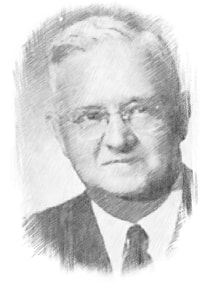 KS Wuest
KS Wuest
The Holy Spirit, Paul says, helps them. The Greek word translated “helpeth,” literally means “to lend a hand together with, and at the same time with one.” Martha used the same word when appealing to our Lord to bid Mary help her with the preparation of the meal (Luke 10:40). The Holy Spirit lends a hand together with us as we are praying. It is not that He helps us bear our weaknesses, but He helps our weaknesses.
The weaknesses spoken of here are two, what we should pray for, the matter of prayer, and how we should pray, the form and manner of our prayer. The word “what” has an article before it in the Greek. Literally, we do not know “the what” to pray for. That is, we do not know the particular definite thing to pray for. As to the general subjects for prayer, the salvation of the lost, the sanctification of the saints, our daily needs, these we know of. But to be specific in our praying involves a knowledge of God’s will in particular instances, and of that we are naturally ignorant. It is right here that the Spirit comes to our aid.
The word “pray” is from a Greek word made up of a word which means “to pray,” with a prefixed preposition which means literally “toward.” The composite word refers to prayer directed to God, a conscious definite commitment to Him of our needs, our desires, our petitions. The Holy Spirit thus energizes the saint along the line of prayer for particular things which are according to the will of God, prayer directed consciously to Him.
The word translated “know,” is not the Greek word which means “knowledge gained by experience,” but “knowledge that is intuitive, natural to one’s being and constitution.” We do not have intuitive knowledge of the particular thing to pray for. The word “ought” is the same word used in John 3:7 in the word “must.” Literally, it means, “it is necessary in the nature of the case.” The necessity in the nature of the case is found in the fact that God brings His plans to fruition through the prayers of the saints, and in order for us to pray according to the will of God, we must be so yielded to the control of the Spirit that He can bring into our prayer ministry, the things which God is planning to accomplish. It is clear, therefore, that in order to pray aright, we must be filled with the Spirit. --Kenneth Wuest
The weaknesses spoken of here are two, what we should pray for, the matter of prayer, and how we should pray, the form and manner of our prayer. The word “what” has an article before it in the Greek. Literally, we do not know “the what” to pray for. That is, we do not know the particular definite thing to pray for. As to the general subjects for prayer, the salvation of the lost, the sanctification of the saints, our daily needs, these we know of. But to be specific in our praying involves a knowledge of God’s will in particular instances, and of that we are naturally ignorant. It is right here that the Spirit comes to our aid.
The word “pray” is from a Greek word made up of a word which means “to pray,” with a prefixed preposition which means literally “toward.” The composite word refers to prayer directed to God, a conscious definite commitment to Him of our needs, our desires, our petitions. The Holy Spirit thus energizes the saint along the line of prayer for particular things which are according to the will of God, prayer directed consciously to Him.
The word translated “know,” is not the Greek word which means “knowledge gained by experience,” but “knowledge that is intuitive, natural to one’s being and constitution.” We do not have intuitive knowledge of the particular thing to pray for. The word “ought” is the same word used in John 3:7 in the word “must.” Literally, it means, “it is necessary in the nature of the case.” The necessity in the nature of the case is found in the fact that God brings His plans to fruition through the prayers of the saints, and in order for us to pray according to the will of God, we must be so yielded to the control of the Spirit that He can bring into our prayer ministry, the things which God is planning to accomplish. It is clear, therefore, that in order to pray aright, we must be filled with the Spirit. --Kenneth Wuest









